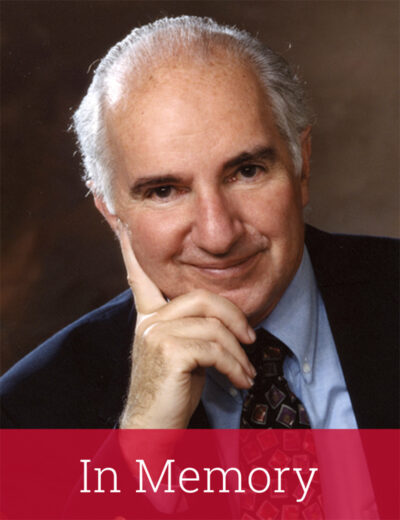Yu, Z. Q., Carmichael, J., Collins, G. A., D'Agostino, M. D., Lessard, M., Firth, H. V., Harijan, P., Fry, A. E., Dean, J., Zhang, J., Kini, U., Goldberg, A. L., & Rubinsztein, D. C. PSMC5 insufficiency and P320R mutation impair proteasome function, Human Molecular Genetics, May 22, 2024, Read More
Lee, D., & Goldberg, A. L. 26S proteasomes become stably activated upon heat shock when ubiquitination and protein degradation increase, Proceedings of the National Academy of Sciences of the United States of America, June 21, 2022, Read More
VerPlank, J. J. S., Lokireddy, S., Zhao, J., & Goldberg, A. L. 26S Proteasomes are rapidly activated by diverse hormones and physiological states that raise cAMP and cause Rpn6 phosphorylation, Proceedings of the National Academy of Sciences of the United States of America, March 5, 2019, Read More
Collins, G. A., & Goldberg, A. L. Proteins containing ubiquitin-like (Ubl) domains not only bind to 26S proteasomes but also induce their activation, Proceedings of the National Academy of Sciences of the United States of America, March 3, 2020, Read More
VerPlank, J. J. S., Tyrkalska, S. D., Fleming, A., Rubinsztein, D. C., & Goldberg, A. L. cGMP via PKG activates 26S proteasomes and enhances degradation of proteins, including ones that cause neurodegenerative diseases, Proceedings of the National Academy of Sciences of the United States of America, June 8, 2020, Read More
Lee, D., Takayama, S., & Goldberg, A. L. ZFand5/ZNF216 is an activator of the 26S proteasome that stimulates overall protein degradation, Proceedings of the National Academy of Sciences of the United States of America, September 25, 2018, Read More
Kim, H. T., & Goldberg, A. L. UBL domain of Usp14 and other proteins stimulates proteasome activities and protein degradation in cells (vol 115, pg E11642, 2018), Proceedings of the National Academy of Sciences of the United States of America, November 28, 2018, Read More
Goldberg, A. L., Kim, H. T., Lee, D., & Collins, G. A. Mechanisms That Activate 26S Proteasomes and Enhance Protein Degradation, Biomolecules, May 22, 2021, Read More
VerPlank, J. J. S., & Goldberg, A. L. Regulating protein breakdown through proteasome phosphorylation, Biochemical Journal, September 24, 2017, Read More
VerPlank, J. J. S., Gawron, J., Silvestri, N. J., Feltri, M. L., Wrabetz, L., & Goldberg, A. L. Raising cGMP restores proteasome function and myelination in mice with a proteotoxic neuropathy, Brain, August 11, 2021, Read More
Collins, G. A., & Goldberg, A. L. The Logic of the 26S Proteasome, Cell, May 18, 2017, Read More
Kim, H. T., & Goldberg, A. L. The deubiquitinating enzyme Usp14 allosterically inhibits multiple proteasomal activities and ubiquitin-independent proteolysis, Journal of Biological Chemistry, June 9, 2017, Read More
Collins, G. A., Sha, Z., Kuo, C. L., Erbil, B., & Goldberg, A. L. Mammalian Ddi2 is a shuttling factor containing a retroviral protease domain that influences binding of ubiquitylated
proteins and proteasomal degradation, Journal of Biological Chemistry, March 28, 2022, Read More
Sha, Z., Blyszcz, T., González-Prieto, R., Vertegaal, A. C. O., & Goldberg, A. L. Inhibiting ubiquitination causes an accumulation of SUMOylated newly synthesized nuclear proteins at PML bodies, Journal of Biological Chemistry, July 8, 2019, Read More
Kim, H. T., Collins, G. A., & Goldberg, A. L. Measurement of the Multiple Activities of 26S Proteasomes, Methods in Molecular Biology, September 22, 2018, Read More
Lee, D., Zhu, Y., Colson, L., Wang, X., Chen, S., Tkacik, E., Huang, L., Ouyang, Q., Goldberg, A. L., & Lu, Y. Molecular mechanism for activation of the 26S proteasome by ZFAND5, Molecular Cell, August 17, 2023, Read More


